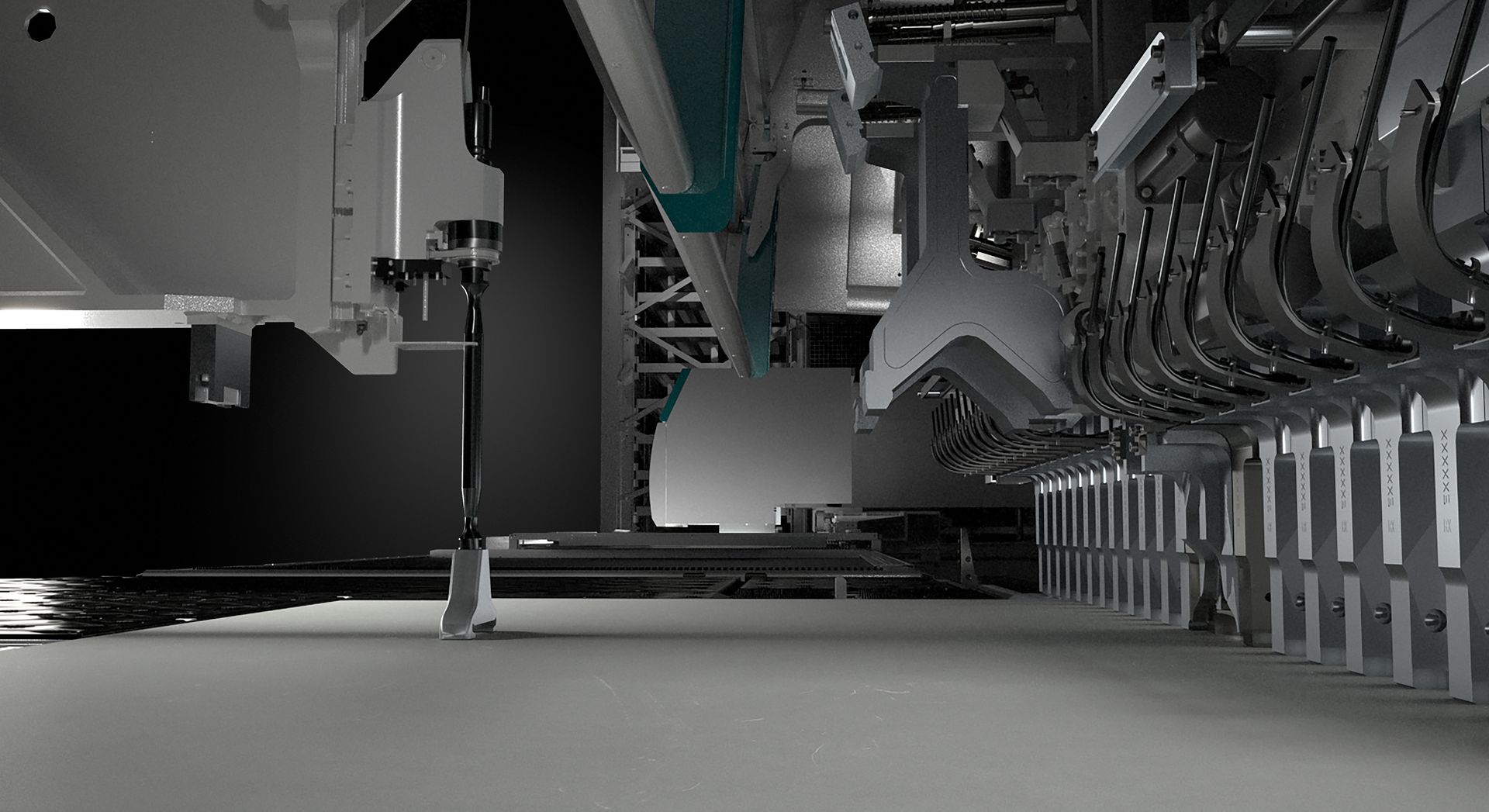Improve Process Flow with a Flexible Manufacturing System

Improving process flow is a key goal for many manufacturing companies, and implementing a flexible manufacturing system (FMS) can be an effective way to achieve this. An FMS can help to optimize production processes, increase efficiency, and reduce waste, among other benefits. Salvagnini America’s products have been the most efficient flexible manufacturing system on the market for sheet metal processing, so we know a thing or two.
What is a Flexible Manufacturing System?
A flexible manufacturing system is a production system that is capable of producing a variety of different products without the need for manual intervention. It is designed to handle small to medium production runs, where there is a requirement for rapid changeovers, and it is characterized by its high level of automation, use of robotics, and computer control.
Flexible Manufacturing System (FMS) Benefits & Advantages
One of the key advantages of an FMS is that it improves the process flow by reducing production lead times and minimizing waste. This is achieved through the following ways:
- Reduced Changeover Time: An FMS is designed to minimize changeover times between different product runs. With automated equipment and computer control, it is possible to reprogram machines quickly and easily, allowing for rapid changeovers.
- Enhanced Material Handling: An FMS is designed to handle materials more efficiently, with the use of automated guided vehicles (AGVs), conveyor systems, and robotics. This results in reduced material handling time and increased production efficiency.
- Improved Quality Control: An FMS includes integrated quality control systems that ensure consistent quality throughout the production process. This results in a reduction in defects, rework, and waste, as well as improved customer satisfaction.
- Real-Time Production Monitoring: An FMS includes real-time monitoring systems that provide production managers and operators with up-to-date information on the production process. This allows for better decision-making, improved scheduling, and more efficient use of resources.
- Scalability: An FMS is designed to be scalable, which means it can be easily expanded or modified to meet changing production requirements. This flexibility allows businesses to adapt quickly to changes in market demand, product mix, and other factors.
How Do I Integrate an FMS with Company Workflow?
- Analyze Your Current Process Flow: Before you can improve your process flow with an FMS, you need to have a clear understanding of how your current processes work. This means analyzing your production line from start to finish, identifying areas of inefficiency or waste, and determining where bottlenecks are occurring. This analysis can help you to identify specific areas where an FMS can make the biggest impact.
- Define Your Goals: Once you have a clear understanding of your current process flow, it's important to define your goals for improvement. These goals should be specific, measurable, and achievable, and should be tied to specific metrics like cycle time, production capacity, or quality control. By defining your goals up front, you can ensure that your FMS implementation is aligned with your overall business strategy.
- Select the Right FMS Solution: There are a wide range of FMS solutions available, each with their own strengths and weaknesses. Some are designed for high-volume production lines, while others are better suited to smaller batch sizes or custom manufacturing. It's important to select an FMS solution that is tailored to your specific needs, and that can be customized to meet your unique requirements.
- Train Your Employees: One of the most important factors in a successful FMS implementation is employee training. Your employees will need to understand how the FMS works, how to operate it, and how to troubleshoot any issues that arise. Training should be ongoing, and should be focused on helping your employees to achieve your defined goals for process improvement.
- Monitor and Optimize Performance: Once your FMS is up and running, it's important to monitor its performance and make continuous improvements. This means tracking key metrics like cycle time, production capacity, and quality control, and using this data to identify areas for improvement. By making continuous improvements, you can ensure that your FMS is delivering the maximum benefits to your production line.
Flexible manufacturing systems (FMS) improve process flow and offer numerous advantages to a business, including increased productivity, improved quality, flexibility, cost savings, and enhanced safety. FMS is an important tool for businesses looking to remain competitive in today's rapidly changing business environment.
Contact Salvagnini America to chat with one of our salespeople on how installing a flexible manufacturing system can significantly improve your company’s workflow.

salvagnini america inc.
27 Bicentennial Court
Hamilton, Ohio 45015 USA
513-874-8284
info@salvagnini.com
Salvagnini America Inc,


